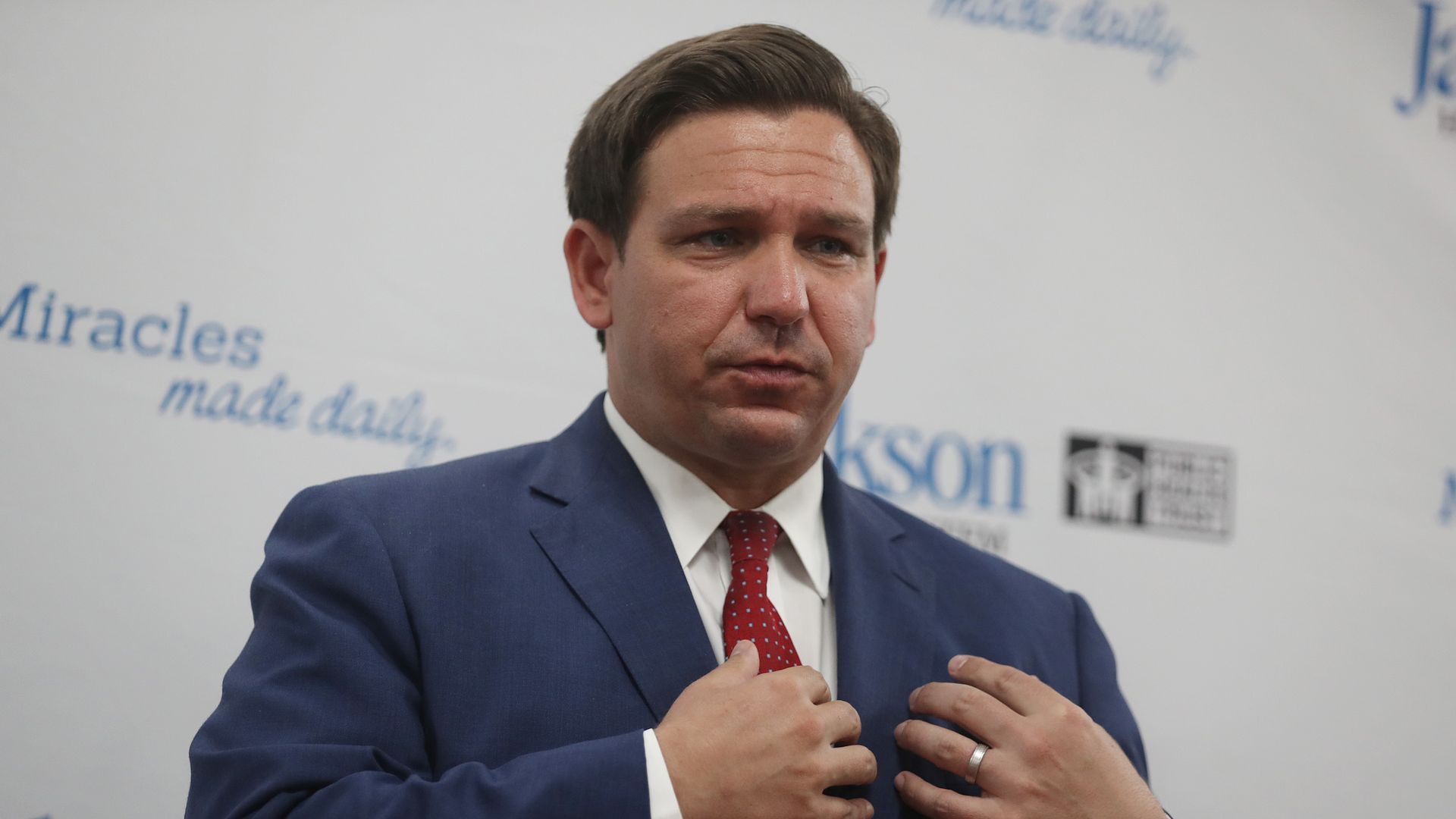Jul 16, 2020 - Politics & Policy
Supreme Court won't block Florida law limiting felons' voting rights
Add Axios as your preferred source to
see more of our stories on Google.

Florida Gov. Ron DeSantis. Photo: Joe Raedle/Getty Images
Add Axios as your preferred source to
see more of our stories on Google.

Florida Gov. Ron DeSantis. Photo: Joe Raedle/Getty Images